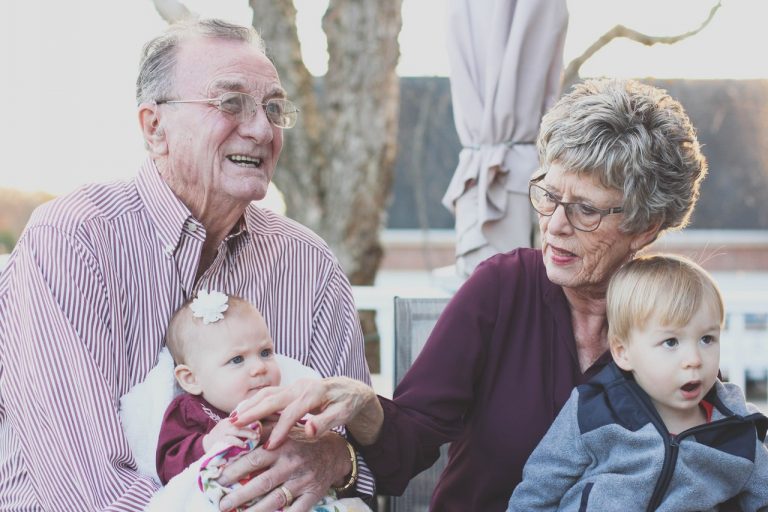
When a loved one has been diagnosed with a form of dementia such as Alzheimer’s disease, it can affect everyone close to them. Alzheimer’s disease is a progressive disease that affects memory, thinking, and behaviors. Because of this, many family members will begin to notice changes outside of the character of their loved one that may be hard to understand. This can be especially true for young children who may not comprehend why your loved one’s behaviors or personality have begun to change. You may struggle to know how to handle the situation and how to address these changes. Here are a few tips to help young children better understand an Alzheimer’s diagnosis.
Tell the truth and educate – Teach young children about Alzheimer’s disease and the different behaviors they may experience with their elderly loved one. For example, “Grandpa has a disease that makes it difficult for him to remember things that he used to. It’s not your fault, and it’s something you can learn to help him with.” Welcome questions and be open to learning about and handling new challenges together.
Find simple and fun ways to cultivate their relationship – Find enjoyable and simple activities for your child and their grandparent to enjoy together. Arts and crafts, singing and music, enjoying photos, or reading together are all good ways to spend quality time with one another.
Discuss ideas of how to cope – Understandably, young children in your family may experience grief while having to face the inevitable decline of your loved one. Because there is no right way to grieve, talk about how you work through difficulties and develop strategies to help cope. For example, “I understand how difficult it may be when Grandma forgets your name. Although her disease makes it hard for her to remember certain things. Remember that she is doing her best and that she still loves you.” Be mindful of different grieving processes and how to be there for a young child.
Take care of yourself as the caregiver – Remember that your needs are important as you navigate the diagnosis of your loved one. As a caregiver, you will make sacrifices and changes. However, it’s important to take care of your wants and needs to ensure you don’t become too overwhelmed or burnt out. Local support groups help you connect with other caregivers as well as experts in your area.
When dementia sets in, it’s beneficial for loved ones to remain in familiar locations and with loved ones. In-home dementia care agencies, such as Aspen Senior Care, cater to those who need special care at home. Senior Day Care Centers, such as Aspen Senior Day Center, offer engaging activities and personalized service for seniors needing memory care while also providing family caregivers with the break they need and deserve.
To find out more about Aspen Senior Care and Aspen Senior Day Center’s commitment to excellence, please visit:
AspenSeniorCare.com – 801-224-5910
AspenSeniorCenter.org – 801-607-2300
